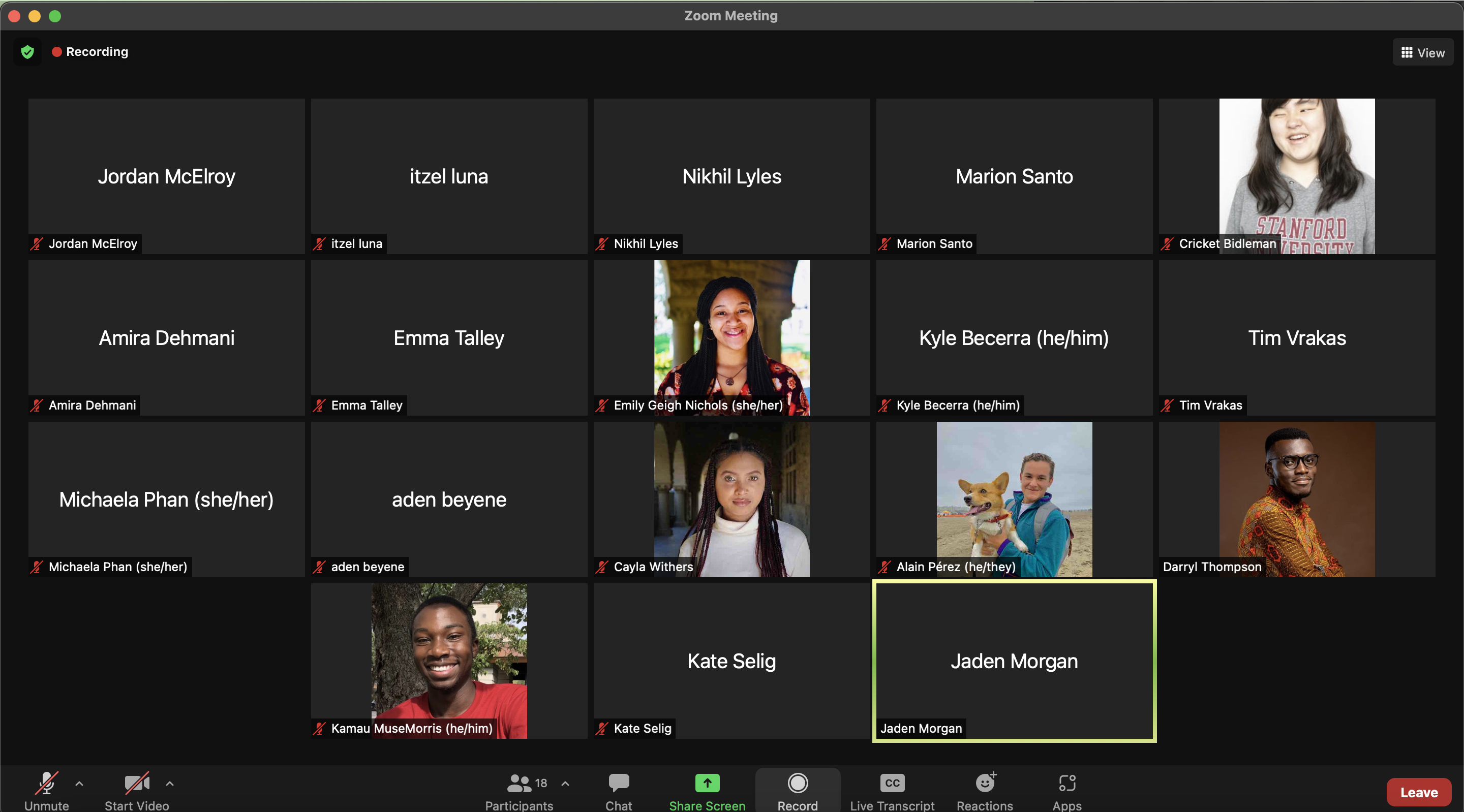The Undergraduate Senate again declined to approve the Stanford College Republicans’ (SCR) request for funding to bring Mike Pence to campus in a Tuesday meeting.
The focus of the meeting was revoting on standard grants, including SCR’s, following concerns raised about the original vote being held in a private Slack channel, a potential violation of Senate bylaws. Senators unanimously approved all other funding requests.
“We acknowledge that there was some unconstitutionality behind voting in a private Slack channel even though our votes were to be made public within a week,” said Senate co-chair Alain Perez ’23.
The meeting began with Senate co-chair Emily Nichols ’23 saying that redoing the votes would ensure transparency and that the votes would be made public.
Five senators voted in favor of SCR’s $6,000 funding request to bring former Vice President Mike Pence to campus in the winter quarter. Eight senators abstained and no one voted against the funding which, according to the senators, constituted a failure to receive majority approval.
This vote marks a slight decline in approvals from last week’s Slack vote, in which seven senators voted in favor, seven abstained and one voted against.
“I personally voted to abstain from the funding request because I don’t want that blood on my hands,” Perez said, referring to last week’s vote. “I think that there are personal, fundamental values to me as a person that got me elected to be on Senate that is strictly contradictory to voting in favor of this funding.”
Perez again abstained on Tuesday.
In addition to general concerns with SCR and Mike Pence, senators cited concerns about the spread of COVID-19 and the potential for the event to draw large crowds from outside of the county and state. In SCR’s funding request, the group projected that the event could draw 1,000 attendees. Multiple senators also hesitated to candidly speak about their concerns with the event out of fear of doxxing. SCR has previously publicly attacked and doxxed Stanford affiliates, including undergraduate senators.
Though senators said that the five votes in favor and eight abstentions constitutes a majority, it is unclear whether this is a correct interpretation of the Senate’s bylaws.
Standard grants require a majority vote to pass, according to the Senate’s bylaws: “All votes by the [Undergraduate Senate], or a standing committee thereof, shall be by a majority of those members present and voting.” The Undergraduate Senate Rules of Order, linked on the Associated Students of Stanford University’s [ASSU] governing documents, states that abstentions do not count towards vote tally. When interpreted in this manner, the funding received a majority approval of the present and voting members, as the senators who abstained did not vote.
However, in a response to a Daily question in a public student government Slack channel, Perez wrote that despite no senators voting against the funding for SCR, this week’s vote did not meet the threshold for a majority. Perez referenced “parliamentary procedure” in the same channel, citing a blogpost on Civility.co to explain why abstentions counted as voting.
Senator Amira Dehmani ’24 added that “if you did want to count five votes [in favor of the funding] as the only ones that counted, that did not constitute quorum,” and the vote would still fail.
At the meeting, community members also expressed concern that SCR was not given proper notice of the revote. A SCR representative was not present at the meeting.
Senators said they had given community members adequate notice through a public Senate Slack channel, #ugs-public, on the student government Slack. At the meeting, senators said that members of SCR had not been personally informed of the Tuesday meeting and it was not standard practice of the Senate to extend personal invitations to other groups requesting funding.
At the time of publication, the public channel had 40 members, the majority of whom are affiliated with the ASSU. An additional six members are Daily news staffers.
“None of us reached out to SCR,” Perez added. “If they wanted to know about it [the Tuesday meeting], they could be on the ASSU Slack.”
